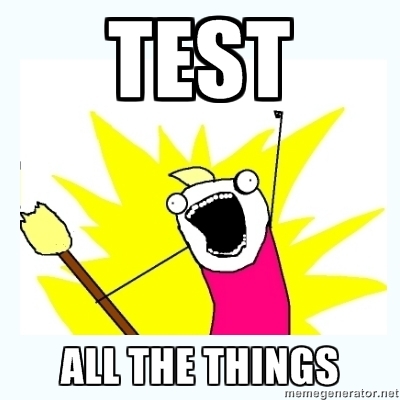 |
| Photo courtesy of |
Working with standardized
testing is one of the things I perceive will be a big challenge for me as I
begin my teaching career. While I understand the necessity and even
productivity of assessing students in school, our readings this week confirmed
my belief that standardized tests are often not the best way to assess a
student’s reading proficiency and comprehension. I learned a lot this week
about assessment, including:
--Thinking about
the term “differentiation” as it applies to reading level, and learning the
terms “frustration level,”
“instructional level,” and independent level”
--A reminder that
levels aren’t an absolute indicator of a text’s difficulty, or a student’s
ability
--Considering the
value of assessing reading subskills to get a deeper sense of student’s
ability, and respond as their teacher accordingly
--Types of IRIs
including CRIs and cloze procedures
Before doing these
assessment-oriented readings, my thoughts regarding “testing” were mostly
negative: worry, discomfort, confusion, even fear. However, after learning
about the different assessment possibilities in the course materials, I feel a
lot more prepared to engage with testing. I have an awareness about ways in
which I can assess my students’ reading levels, and use those results to create
activities that fall within their Zone of Proximal Development. I understand
better that tests don’t have to look like “tests,” if that makes sense. There
can be differentiation, individualization, and a structure that uses testing to
really improve classroom learning.
I will be honest
that I still feel wary of standardized testing, and worried about how to engage
with that topic in a positive way as I begin my first teaching job at a new
school, with new colleagues, superiors, and parents to contend with. Standardized
testing is a hot button issue in our society. People have a lot of strong
opinions about it, including me. And yet, I will be responsible for
administering these tests to my students. How can I live my values in this complicated
situation?
Hey Julia,
ReplyDeleteYou bring up really salient concerns in this post. Thank you for your truth! I, too, struggle with the idea of administering high-stakes standardized tests to future students. Just knowing about the lack of accountability these tests actually have towards students' growth and learning is enough to be concerned, not to mention the corporate education reform backing of many of these tests, and how these tests are used to punish rather than assist. But all that aside, I totally agree with you in viewing "tests" not as "tests". I liked the ideas provided by the Alvermann et. al. reading in what determines a "good" assessment, namely:
-draws on multiple sources of information
-results in information that is useful to both students and teachers
-gives students optimal conditions for showing their capabilities
-involves students in self-assessment
-admits the potential of fallibility
I'm pretty on board with these ideas, and it seems like you are as well. Perhaps one way we can maintain our values surrounding testing is to ask the students (allegedly the stakeholders in this line of work ;) ) and see what they think of testing. Have them engage with the topic and bring it to the administration, the school board, heck, even the superintendent. At least the conversation will be started.